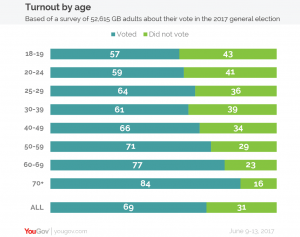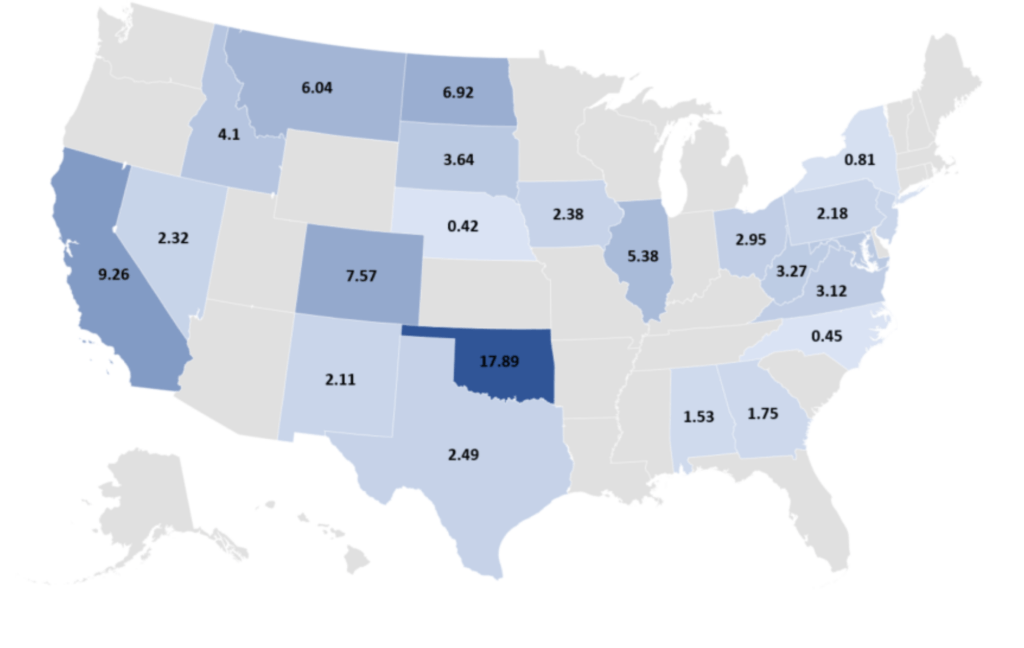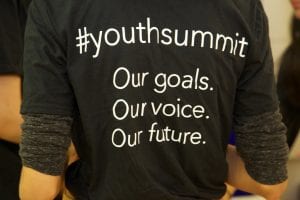“MPs need to step up, start listening to young people and provide them with hope for the future.” – Carole Easton, Young Women’s Trust (ITV News, 2018)
Politics in 2019 is confusing, to say the least. Over the last ten years we’ve had snap elections, EU referendums and a changing Parliament body. In these times young people need politicians to encourage them and policies which benefit them. Nowadays most young people have a celebrity idol that they look up to, but how many can name their favourite politician?
I ask you, who is your political role model? When the average age of an MP is fifty, it seems impossible for young people to feel a link between politicians’ experiences and their own (Moseley, 2016). Surely this is enough to discourage young people from becoming politically engaged? I pick my role models based on people with the same background and experiences, to look up to and copy what they are doing without being judged or questioned. It gives me hope that one day I can be like them, but how many young people aspire to be a politician these days with the uncertainty that comes with the job?
One way in which the idea of role models could be used to help engage young people in politics is by getting celebrities to encourage young people to vote. Over recent years celebrities have had a significant impact on the youth, especially in issues important to them such as mental health. If celebrities who young people see as role models were to use social media to say they had voted or engaged in current political issues, young people would likely want to imitate their actions.
As well as the issue of role models, policies put forward by the government tend to benefit older generations, known as gerontocracy: whereby a system is in place so that a country is run to benefit the old, with schemes like free bus passes or state pensions. Arguably it is the old that tend to decide elections (Welson, 2013). Policies like this in are surely enough to dishearten young people from getting involved in politics, considering they have had tuition fees increased and benefits taken away.
Recent data supports this, highlighting that young people are not motivated to engage in politics involving MPs and Westminster as it is hierarchical and detached from what they themselves are experiencing in life (Hart, 2017). Older generations can find resemblance in politicians of their own values and ideas, whereas the younger generations are likely to have differing views.
However, Figure 1 shows the youth turnout in the 2017 election was only 8% lower than what is suggested as the national average (Curtis, 2017). Whereas, statistics from the general election of 2015 suggest that only 43% of 18-24 year olds went to the polls, compared with 79% of 65 or over (Barford, 2017).

I was old enough to vote in the 2017 election, although not in 2015, and my reason for voting for the party that I did was based solely on whether their proposed ideas would help me, not just now but also in the future. It could be that, at long last, MPs of our country are slowly starting to listen to what young people want and motivating them to vote, explaining the increase – which has been referred to as “youthquake”. It is defined as a significant cultural, political, or social change arising from the actions or influence of young people, and it was voted word of 2017, suggesting that youth engagement in politics may be changing for the better (Cain, 2017).
Young people may not be politically apathetic: they may merely be missing the guidance and influence of others to make the right choice as to whether to engage. As highlighted in the video below, for young people to feel empowered they need to realise their voice is being heard:
Some have put the argument of lowering the voting age across, suggesting it could have made a difference in recent elections, however I do not believe so. There is still a significant majority of youth who feel they do not have enough of the information or education needed to have made an informed decision on political affairs. (Spratt, 2018).
I believe that before the voting age is tackled, something needs to be done to place more emphasis on political education in our country. Having studied aboard in the USA, I realised how much more citizens were educated on the political system compared to in the UK, with civic education forming a key part of the American school curriculum. This education seems to have been a success, with Figure 2 showing there was an increase in youth voter turnout between the 2014 and 2018 midterms in many states – suggesting that education and motivating students needs to be at the forefront when tackling divides in political engagement.

Therefore, to remove the apparent inequalities, we must find answers to these questions:
- Can politicians act as role models and encourage the youth of Britain today?
- Can the political system be explained in simple terms to youth all around the country to ensure they are able to make an informed decision?
Bibliography
Barford , V., 2017. BBC News: Election 2017: if more young people actually voted, would it change everything?. [Online]
Available at: https://www.bbc.co.uk/news/election-2017-39965925
[Accessed 13 February 2019].
Cain, S., 2017. The Guardian: ‘Youthquake’ named 2017 word of the year by Oxford Dictionaries. [Online]
Available at: https://www.theguardian.com/books/2017/dec/15/youthquake-named-2017-word-of-the-year-by-oxford-dictionaries
[Accessed 13 February 2019].
Curtis, C., 2017. YouGov: How Britain voted at the 2017 general election. [Online]
Available at: https://yougov.co.uk/topics/politics/articles-reports/2017/06/13/how-britain-voted-2017-general-election
[Accessed 12 February 2019].
Hart, J., 2017. The Conversation: Britain’s young people are getting back into politics at last. [Online]
Available at: http://theconversation.com/britains-young-people-are-getting-back-into-politics-at-last-76682
[Accessed 12 February 2019].
ITV News, 2018. ITV Report: Half of young people losing confidence in MPs, poll finds. [Online]
Available at: https://www.itv.com/news/2018-09-04/half-of-young-people-losing-confidence-in-mps-poll-finds/
[Accessed 13 February 2019].
Moseley, T., 2016. BBC News: Should MPs be role models for young people?. [Online]
Available at: https://www.bbc.co.uk/news/uk-politics-37308008
[Accessed 11 February 2019].
Spratt, V., 2018. BBC Three: The truth about young people and Brexit. [Online]
Available at: https://www.bbc.co.uk/bbcthree/article/b8d097b0-3ad4-4dd9-aa25-af6374292de0
[Accessed 9 February 2019].
Welson, F., 2013. The Telegraph: The young pay a heavy price for the support given to the elderly. [Online]
Available at: https://www.telegraph.co.uk/news/politics/10385889/The-young-pay-a-heavy-price-for-the-support-given-to-the-elderly.html
[Accessed 12 February 2019].
Smith, C, 2015 Engaging Young People in Politics https://www.youtube.com/watch?v=RQKE1V4I2Yw (Accessed 12 February 2019)

I love the strong quotation that begins the post, it basically sums up the whole post but in a snappy way, and sets the tone for the rest of the blog.
I enjoyed how relatable your writing is, and as soon as you asked the question about political role models, I realised that one did not spring to mind immediately and that I had to give a lot of thought to who I would consider a role model in this current political climate. In contrast, thinking of my celebrity role model is a much easier task. I think this really does demonstrate the separation of young people from politics. Not completely but definitely in terms of the politicians that represent us ( or in fact as evidenced here, do not represent us).
I really think that the recent involvement of celebrities in politics has been incredibly positive, especially when said celebrities are actively encouraging the younger generation to get out and vote.
Furthermore, the topic of politicians creating policies predominantly for the older generation, is something that I think does add an element of disengagement amongst young people. It’s very hard to get passionate about things that have nothing to do with your life at all. And also disheartening to not be considered as people who are worthy of new policies that could improve our lives. It was nice to read about this area of the argument that I feel very passionate about.
Hopefully young people people grow in their level of political engagement, but also that politicians will see that young people really do care and that many are already very active citizens.
Really enjoyed your blog and the style in which it was written.
Reading through your first blog really has me thinking about the lack of political role models that young people have in politics that understands their wants and needs, and will truly advocate for it. As a young person myself, when I see politicians, I don’t see anyone who looks like me or of the same age as me, as you stated, that is likely to discourage any young person from wanting to engage because it makes us feel disconnected from politics. personally I think you have made really good points, and have used evidence to highlight your points, which conveys that you have a lot of in depth research to back your points up.